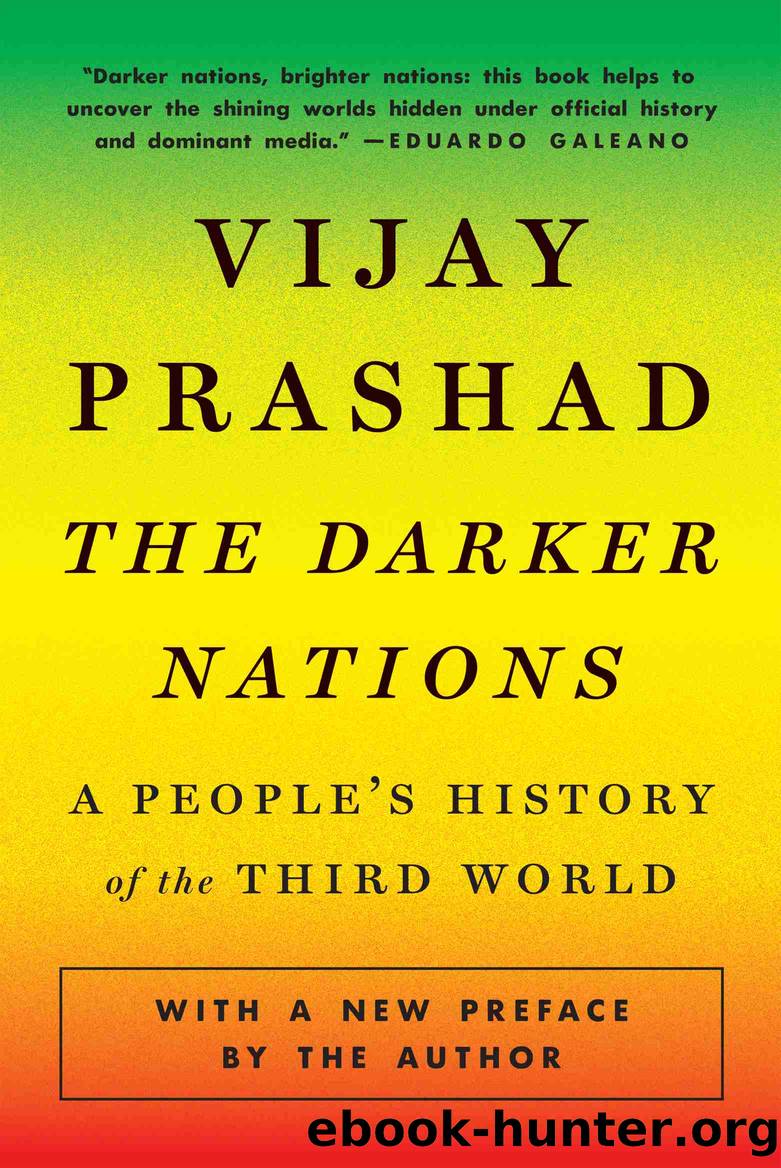The Darker Nations by Vijay Prashad

Author:Vijay Prashad
Language: eng
Format: epub
Publisher: The New Press
ARUSHA
In 1967, the Tanzanian president Julius Nyerere dropped a bombshell in a nondescript town that functioned as the gateway to eastern Africaâs most spectacular natural phenomenon. Founded in 1900 as a garrison town, Arusha is nestled at the base of Mount Meru and within sight of Mount Kilimanjaro and the Serengeti Plain. Here, at the executive committee of his Tanganyika African National Union (TANU), Nyerere unveiled what would become known as the Arusha Declaration. The opening line of the declaration, âThe policy of TANU is to build a socialist state,â discomforted the British and Tanzanian owners and managers of most of the countryâs resources (including the mines and the land). The announcement of socialism came alongside the recognition that its construction would not be easy in a formerly colonized state. Not only had the German and British colonial regimes stripped bare the economy of eastern Africa but they also left behind a state apparatus designed to exploit and not to liberate. The institutions of the state and the civil bureaucracy grew from a culture of imperial hierarchy, a value quite removed from the egalitarianism of national liberation (as illustrated by TANUâs Arusha Declaration and its 1971 Mwongozo or Leadership Code). Hemmed in by pressures from the advanced industrial states, the aristocratic rural classes, and the emergent mercantile classes, the new state had little time. Things had to change in a hurry. But socialism requires imagination and time. It cannot be made in a hurry. To create socialism in a hurry without mass support, and institutions that can channel this support, led many Third World states to disaster.
The Arusha Declaration validated the twin principles of liberty and equality, individual rights and collective well-being.1 The state had to eliminate poverty, ignorance, and disease. That was unimpeachable. But how should the state go about the process of elimination? What is the organizational form for the transformation of society? Should it be a centralized state alone, or does it need to cultivate democratic (perhaps local) institutions that could harness the energy, ingenuity, and enthusiasm of a population only recently freed? Tanzaniaâs population was mainly resident in rural areas and dependent on agriculture. Any institutional change needed to address agriculture and its role in the society as well as the world. After many fits and starts, the Nyerere regime adopted the idea of the socialist village (ujamaa vijini) as the main organizational form for rural change. But the regime recognized that agrarian reform was insufficient. The national liberation regime had to solve some of the main demands of the population before its political capital ran out. In Tanzania, output in the subsistence sector was only 2 percent (while population growth was 3 percent). Even though Tanzania had a high rate of increase in food production, TANU inherited a crisis situation. Agriculture, in an industrial world, could not alone deal with the peopleâs aspirations and needs. The international terms of trade had a bias against agricultural commodities. Since rural Tanzania (like the rural areas of the world) required industrial products, its dwellers had a disadvantage.
Download
This site does not store any files on its server. We only index and link to content provided by other sites. Please contact the content providers to delete copyright contents if any and email us, we'll remove relevant links or contents immediately.
The Secret History by Donna Tartt(16667)
The Social Justice Warrior Handbook by Lisa De Pasquale(11495)
Thirteen Reasons Why by Jay Asher(7803)
This Is How You Lose Her by Junot Diaz(5800)
Weapons of Math Destruction by Cathy O'Neil(5049)
Zero to One by Peter Thiel(4838)
The Myth of the Strong Leader by Archie Brown(4796)
Promise Me, Dad by Joe Biden(4459)
Beartown by Fredrik Backman(4435)
Stone's Rules by Roger Stone(4423)
How Democracies Die by Steven Levitsky & Daniel Ziblatt(4418)
The Fire Next Time by James Baldwin(4352)
100 Deadly Skills by Clint Emerson(4089)
A Higher Loyalty: Truth, Lies, and Leadership by James Comey(4042)
Rise and Kill First by Ronen Bergman(4025)
The David Icke Guide to the Global Conspiracy (and how to end it) by David Icke(3895)
The Farm by Tom Rob Smith(3880)
Secrecy World by Jake Bernstein(3791)
The Doomsday Machine by Daniel Ellsberg(3740)
